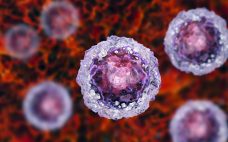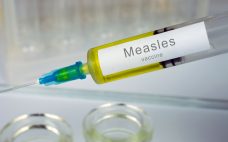The $18 million acquisition is a drop in the ocean compared to the Paragon Bioservices buy but demonstrates Catalent’s appetite to push ahead in the gene therapy space. The $18 million (€16 million) deal sees contract development and manufacturing organization (CDMO) Catalent – through its gene therapy unit Paragon – take over the leases of two facilities in Rockville and Gaithersburg, Maryland from vaccine firm Novavax. All related manufacturing equipment and over 100 of Novavax’ employees will transfer to Paragon.…

Therapeutic Class
AbbVie: Lack of Botox biosimilars a factor in $63bn Allergan buy
AbbVie, a firm all too familiar with biosimilar threats, says the low risk of Botox competition was a factor in its decision to acquire Allergan. The agreed $63 billion (€55 billion) megamerger with Allergan strengthens AbbVie’s pharma assets and provides the firm with a healthy growth platform, Bioprocess Insider reported last week. Allergan’s lead product neurotoxic protein Botox (botulinum toxin) brought in $3.6 billion in sales revenue in 2018 and will add immediate add scale to AbbVie in neuroscience, as…
ambr alert: Sartorius vessel specialized for cell & gene therapies
Sartorius has launched an ambr 250 vessel for cell and gene therapy applications it says taps into industry’s transition from adherent to suspension cell culture formats. Sartorius Stedim Biotech (SSB) has added to its range of ambr 250 modular benchtop bioreactor systems with a single-use vessel designed to accelerate the process development of cell and gene therapy applications, before scaling-up into single-use bioreactors and bags. Existing ambr mammalian vessels are often used for process development of monoclonal antibodies (MAbs) in…
Bluebird’s gene therapy latest to feel ‘inevitable’ teething problems
Bluebird Bio’s $1.8 million gene therapy Zynteglo is the latest such therapy to suffer from manufacturing issues, causing a delay to its EU launch. The European Medicines Agency (EMA) approved orphan drug Zynteglo (autologous CD34+ cells encoding βA-T87Q-globin gene) – previously known as LentiGlobin – as a one-off treatment for beta-thalassaemia in June. Developer Bluebird Bio has priced the therapy at €1.58 million ($1.8 million). However, a setback due to manufacturing problems means Bluebird is delaying launch to at least…
Cobra’s Symbiosis relationship making UK cell and gene competitive
CDMOs Cobra Biologics and Symbiosis have completed a collaboration they say has increased and simplified viral vector production and increased the UK’s competitiveness in cell and gene therapy services. After 18 months, the £4.8 million ($6 million) project has come to an end. The collaboration intended to build up viral vector capabilities while supporting the development of gene therapies in the UK, and the two contract development and manufacturing organizations (CDMOs) say these aims have been achieved. “One key aim…
WuXi invests in ADCs again to prep for commercial products
WuXi Biologics will further expand an antibody-drug conjugate (ADC) facility in China on the expectation of its clients’ projects moving to commercial production. In June 2018, WuXi Biologics announced plans to construct a $20 million (€17.6 million), 6,000 square meter facility for protein conjugates, including ADCs, set to be operational later this year. A year on, and the Chinese contract development and manufacturing organization (CDMO) has said it is further expanding the site in Wuxi city, China adding cGMP commercial…
Orgenesis talks cell therapy development for diabetes
Orgenesis has received Orphan Drug Designation for a potential autologous insulin producing cell therapy to treat severe hypoglycemia-prone diabetes resulting from total pancreatectomy. With the designation, Orgenesis hopes to expedite its Autologous Insulin Producing (AIP) cells as a cell replacement therapy for the treatment of severe hypoglycemia-prone diabetes resulting from total pancreatectomy due to chronic pancreatitis. “The therapy is based on taking a small amount of liver cells from the patient. These are propagated to the desired amount of cells…
Lonza building capacity for Gamida’s bone marrow transplant
Lonza will construct suites at its site in The Netherlands dedicated to producing Phase III and commercial supply of Gamida’s bone marrow transplant cell therapy omidubicel. Lonza has produced clinical supply of omidubicel for Gamida but the strategic deal announced today will see the Swiss contract development and manufacturing organization (CDMO) fulfil the future commercial supply from its site in Geleen, The Netherlands. Formerly known as NiCord, omidubicel is the Massachusetts-based cell therapy firm’s lead candidate, currently in Phase III…
Alpine inks iPSCs vision lost therapy deal with Allele
In collaboration with Alpine BioTherapeutics Corporation, Allele Biotechnology and Pharmaceuticals will make therapies for retinal diseases based on induced pluripotent stem cells (iPSCs) The deal, financials of which have not been divulged, sees the two firms enter into a research agreement for developing iPSC-derived cell therapy for treating diseases including blindness caused by Retinitis Pigmentosa, Stargardt disease, and dry AMD. Alpine, which has a patented stem cell differentiation technique used to generate human retinal stem cells from pluripotent stem cells,…
The scale-X factor: Univercells wins $14m grant to make low-cost measles vaccines
Univercells aims to make affordable measles and rubella vaccines using its NevoLine biomanufacturing platform incorporating the scale-X fixed-bed bioreactor. In a consortium with Batavia Biosciences and Natrix Separations, Belgium-based Univercells has been able to develop a manufacturing platform that has slashed the cost of production of inactivated polio vaccine (sIPV). Now, through a $14.3 million (€12.8 million) from the Bill & Melinda Gates Foundation, the firm is looking to adapt the platform to produce low-cost measles and rubella (M&R) vaccines…










